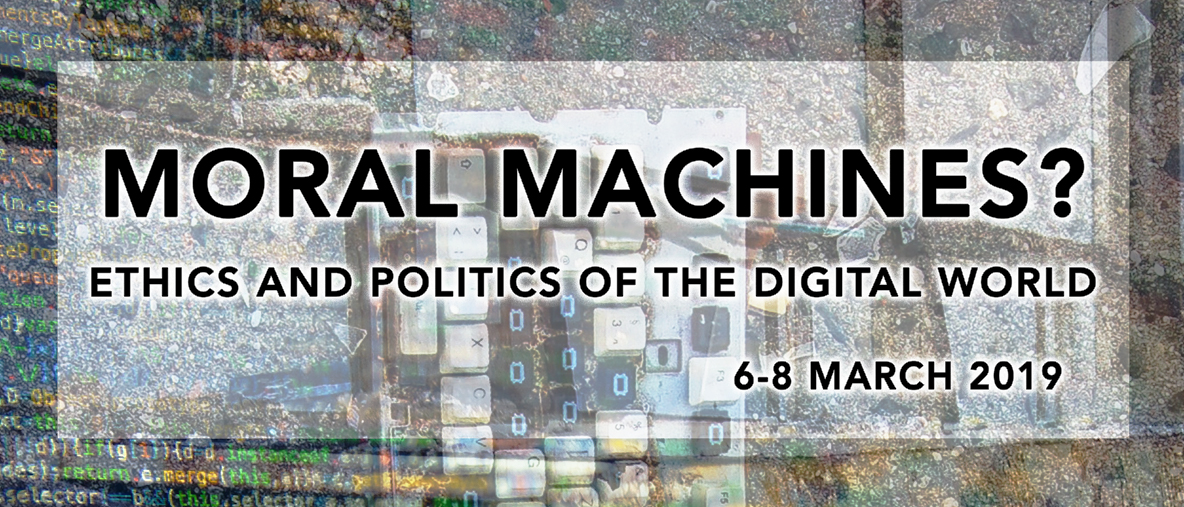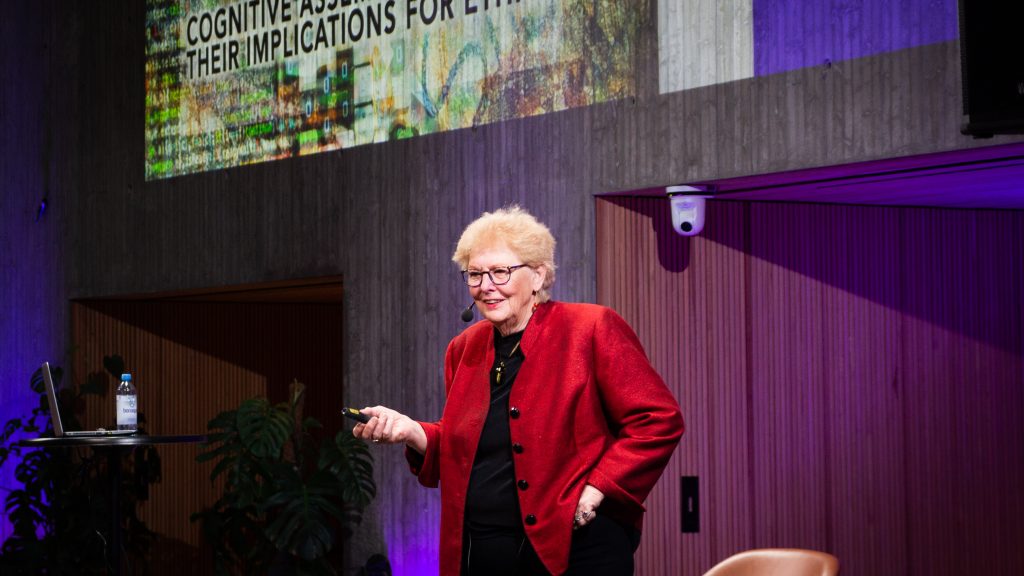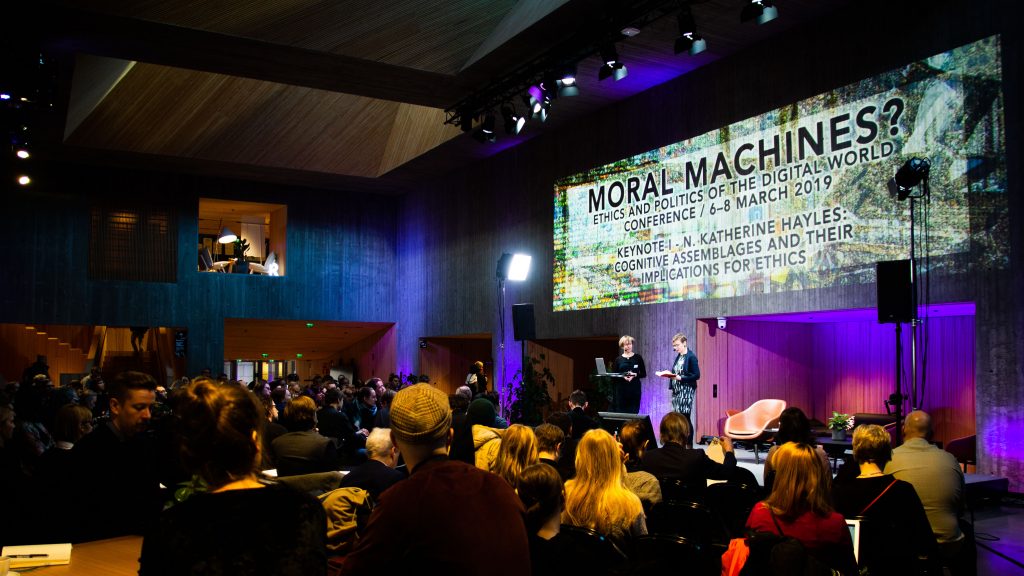By Susanna Lindberg & Hanna-Riikka Roine

As our contemporary world is increasingly digitalized, the ethical, moral and political issues it encompasses require our immediate attention. Technology can no longer be considered as a mere tool since it has a significant effect on both its users and the surrounding environment as well. This can be seen, for example, in the way we assign new tasks to our computers every day. Needless to say, digitalization has been extremely useful in science, technology, economy and everyday life; despite this, however, we also need to examine our relationship to digitalization with a critical eye.
Moral Machines? Ethics and Politics of the Digital World conference began as an idea to bring together N. Katherine Hayles (Duke University) and Bernard Stiegler (University of Compiègne), the two prominent scholars examining the constantly increasing digitalization of our society. After they agreed to come, we started drafting the overall plan for the conference and quickly realised the vastness of the topic. The development of technology and digitalization are phenomena which comprehensively shape our society, and it is for this reason that such phenomena should be examined in an interdisciplinary context.
Furthermore, we saw an urgent need to reflect upon the moral and political implications of digitalization, not only the technological aspects. This is why we not only wanted to appeal to scholars from multiple different fields, but also to create an arena focusing on the humanities and social sciences perspectives. On top of that, we wanted to include an artistic programme.
Initially, Moral Machines was supposed to be a much smaller symposium, but after the call for papers closed, we had received so many good proposals for papers that the symposium doubled in size. This is also why we ended up having six keynotes in a fairly small conference: besides Hayles and Stiegler, we had contacted Erich Hörl (Leuphana University of Lüneburg), Maria Mäkelä (Tampere University), Frédéric Neyrat (University of Wisconsin-Madison) and Francois-David Sebbah (Paris Nanterre University) about joining us.
Due to the wide variety of perspectives to the topics of the conference, the first day of the conference was dedicated to fiction, media and art, while the following two days had parallel session tracks focusing on philosophical and sociological discussions. The presentations ranged from fictional representations of moral machines and the understanding of social media as a moralistic storytelling machine to discussions of various uses of data and theories of thinking and knowledge in the digital world.
The first day culminated in the artistic evening programme organised on the Tiedekulma Stage, with Otso Huopaniemi’s performance, Riikka Talvitie’s composition for the solo clarinette of Fàtima Boix, and the performance of Black Mödernism, a group consisting of the poets Matti Kangaskoski, Eino Santanen ja Tuomas Timonen. The artistic programme proved out to be a real success. As many of the people participating in both the sessions and artistic programme of the conference pointed out, the performances engaged the same questions as the academic presentations but from a completely different – and therefore refreshing – angle.

black mödernism’s self-directing “A to B Networking Collective” presents: “A:sta B:hen. / From A to B. Kaksiarvoinen moraaliesitelmä / Binary Moral Presentation.” (Photo: Minerva Juolahti)
The conference had almost 120 registered participants, and many more came by to catch the keynote talks and sessions and watch the artists perform. From our perspective, everything went quite well, and the feedback was overwhelmingly positive.
Moral Machines confirmed the fact that while the challenges that digitalization poses are complex and numerous, they are being addressed and examined within various different fields. To our delight, Moral Machines was able to bring some of these together in a way that easily surpassed the instinctive digiphilia or digiphobia. In the end, it appears that most presenters rejected the idea that ethical, moral and political responsibilities could be delegated to machines only (as in the famous “moral machine” experiment. However, in the contemporary world, digital systems affect all existential and social situations, either because computing itself takes over certain affective tasks, or because ethics and politics take an active stance to technological frameworks and human-machine assemblages. No doubt, in order to follow the transformations of ethics and politics in a digital world it is useful to assembly expertise from different areas, as the conference was able to do.


